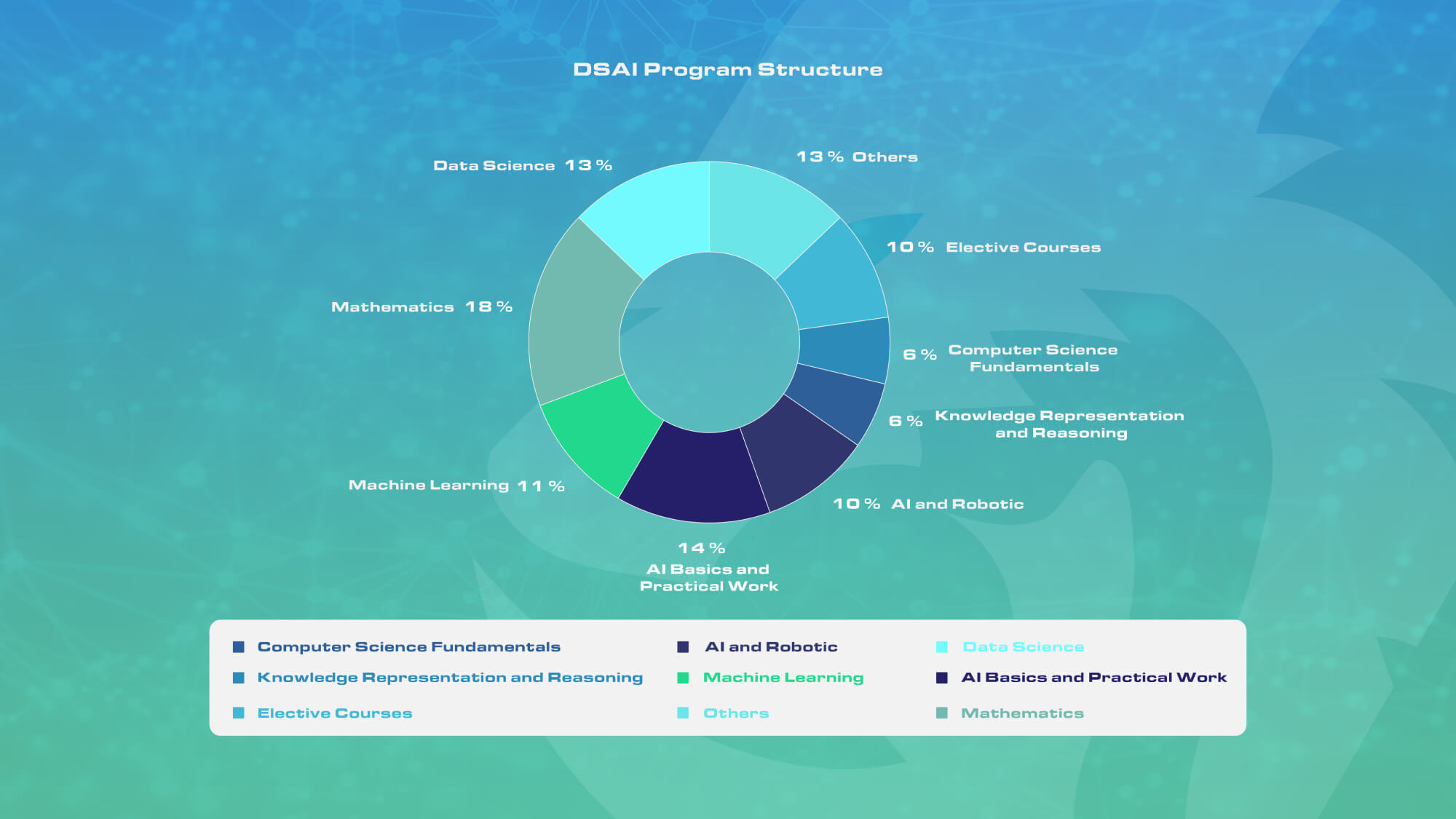Data Analysis: Deep understanding of data analysis techniques, including data cleaning, transformation, and visualization.
Machine Learning: Proficiency in machine learning algorithms, model building, and evaluation.
Artificial Intelligence: Knowledge of artificial intelligence concepts, including neural networks, deep learning, natural language processing, and computer vision.
Programming: Mastery of programming languages such as Python, R, and potentially other languages like Java or C++.
Statistics: Strong foundation in statistical concepts and methods for data analysis.
Database Management: Understanding of database systems and SQL for data storage and retrieval.
Big Data Technologies: Familiarity with big data frameworks and tools like Hadoop, Spark, and NoSQL databases.
Ethical Considerations: Awareness of ethical, privacy and regulatory considerations in data science and artificial intelligence.
Problem-Solving: Strong problem-solving skills to address complex data-related challenges
Critical Thinking: The ability to critically evaluate data, models, and their implications
Project Management: Skills for planning and executing data science and artificial intelligence projects.
Research Skills: Proficiency in conducting research and staying updated with the latest advancements
Our comprehensive curriculum seamlessly blends theory with hands-on experience, empowering students to become proficient in cutting-edge AI technologies and applications.
Specific scientific domains that form the foundation of our curriculum are indicated as follows:

Our meticulously curated courses are crafted to lead our students through the fundamental principles of DS and AI and its practical applications in the real world.
AI Basics and Practical Work: Hands-on courses on fundamentals of AI and its practical applications.
Computer Science Fundamentals: Learn Python, R, C, C++, and other programming languages, along with core, base-knowledge of algorithms, computer science and data structures.
Data Science: Learn vital skills in mathematical techniques and data processing to tackle complex real-world datasets with confidence.
Knowledge Representation and Reasoning: Understand how knowledge is adequately passed onto machines to enable them learning and drawing conclusions.
Mathematics: Gain a strong foundation in the mathematical principles essential for AI development to solve intricate problems and innovate with precision.
AI and Society: Learn how AI can be incorporated in our everyday lives, human-machine interaction and AI importance in societal development.
AI and Robotics: Get insight on AI application in robotics.
View detailed DSAI curriculum.



